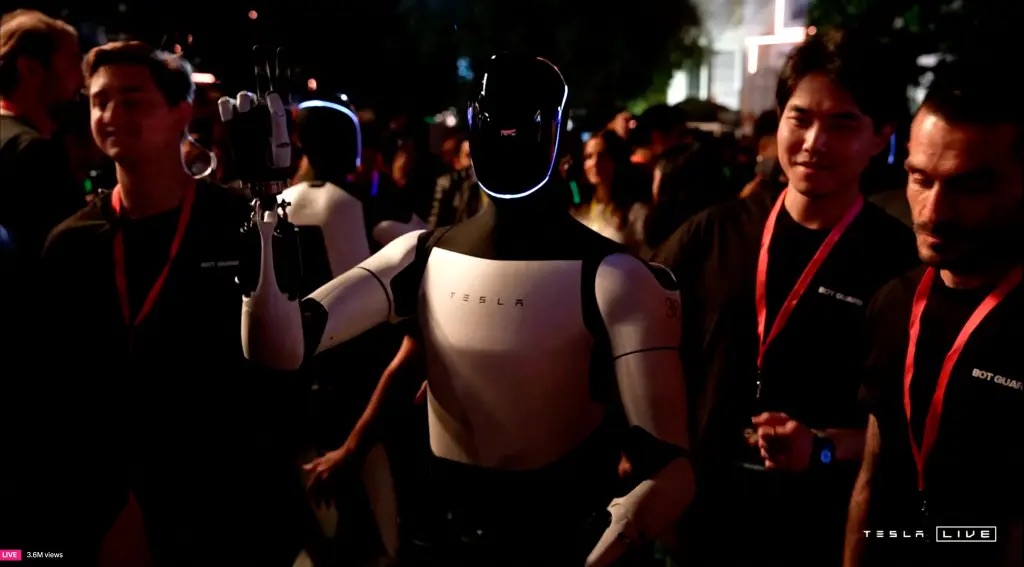
In a dramatic legal move that underscores the growing competition in the robotics sector, Tesla has filed a lawsuit against Zhongjie “Jay” Li, a former engineer for the company. The lawsuit, which was lodged in a federal court in San Francisco on Wednesday, accuses Li of stealing sensitive intellectual property from Tesla's groundbreaking humanoid robot project, Optimus, and using it to launch his own startup, Proception Inc.
Li, who worked as an engineer at Tesla from August 2022 to September 2024, was allegedly entrusted with some of the company’s most critical data related to Optimus. The lawsuit claims that during his tenure at Tesla, Li had direct involvement with the development of the robot’s advanced hand sensors, a core component of the Optimus robot.
Tesla argues that Li misappropriated confidential information, downloading proprietary files onto two smartphones before departing the company.
Following his departure from Tesla, Li reportedly co-founded Proception, a humanoid robot startup based in Palo Alto, California. Just five months after leaving Tesla, Proception unveiled a humanoid robot hand that Tesla’s lawsuit claims closely resembles the technology developed for Optimus.
The complaint suggests that Li, rather than innovating through legitimate channels, opted to shortcut the complex and expensive process of building the technology by allegedly stealing Tesla’s intellectual property.
Tesla's complaint sharply criticizes Li's actions, stating, "Rather than build through legitimate innovation, trial, and technical rigor, Defendants took a shortcut: theft. They misappropriated Tesla’s most sensitive materials, sidestepped the laborious process of development, and launched a company based not on original discovery, but on stolen work." The lawsuit alleges that Li’s actions were an intentional act of theft that took advantage of Tesla's extensive research and development efforts.
Tesla also expressed that the company had invested billions of dollars into the Optimus project, with an emphasis on the advanced robotic hand—a vital piece of technology for the overall success of the robot.
Tesla has sought unspecified "compensatory and exemplary damages" against Li, in addition to requesting a court order preventing Li and his associates from using any proprietary Tesla materials in their own ventures. Furthermore, the company has demanded a jury trial to adjudicate the case, highlighting the seriousness with which it is approaching this legal action.

While Tesla has not disclosed the exact figure for its research and development costs, it is understood that Optimus is a long-term project with significant financial commitments tied to its success.
This lawsuit adds to the growing public profile of Optimus, a humanoid robot that Tesla has branded as a cornerstone of the company's future. Elon Musk, Tesla's CEO, has frequently touted Optimus as a critical project, one that will drive the company’s growth well beyond electric vehicles. Musk predicted during a January earnings call that the value of Optimus could eventually surpass that of Tesla’s car division.
"My prediction long-term is that Optimus will be overwhelmingly the value of the company," Musk said, emphasizing the importance of the robot to Tesla’s future. As Tesla strives to make significant advancements in AI and robotics, the competition has never been fiercer.
The legal battle with Li could set a major precedent for the protection of trade secrets in the robotics industry, where new startups are popping up regularly and large corporations like Tesla are working to secure their technological innovations.

Proception, according to its LinkedIn profile, lists Li as the founder and CEO of the company. Li has described Proception’s work as "tackling one of the most challenging and exciting humanoid projects of our time." Despite the lawsuit, Li has yet to provide any comment regarding the allegations.
His legal team has not responded to requests for clarification on the matter.
Tesla’s claims about the difficulty of developing an advanced robotic hand are not without merit. The company’s engineers have spent years refining the technology, with some of the world's top robotics experts working on the project.
The importance of the robotic hand is underscored by its function as the primary method of interaction for humanoid robots, which must be able to manipulate objects in a highly precise manner—an area that requires years of research and development.
At the heart of Tesla's Optimus project is the goal of creating a humanoid robot capable of performing a variety of tasks, which Musk has envisioned as a solution to labor shortages and a contributor to the company’s larger vision of AI-powered automation.
The legal confrontation with Li adds an additional layer of intrigue to the already competitive and secretive world of robotics development, where advancements can be stifled by theft and intellectual property disputes.
Tesla’s response to the situation signals a broader crackdown on IP theft within the tech industry, where companies are increasingly protecting their innovations from unauthorized use. The lawsuit may also represent a turning point for Proception, whose future now hinges on its ability to navigate this legal challenge.
Li’s actions are now under scrutiny, and Tesla is making it clear that it will not tolerate the theft of its intellectual property. With the potential to cost millions of dollars in damages, the case may serve as a cautionary tale to other engineers and companies involved in robotics and AI, reinforcing the importance of adhering to legal and ethical standards in the development of new technologies.
For now, all eyes are on the unfolding legal battle, which could impact the trajectory of both Tesla’s Optimus project and the emerging humanoid robot market. As the case moves through the courts, the tech world will likely continue to watch as the stakes rise in this high-profile intellectual property dispute.

-1749481098-q80.webp)
-1749483269-q80.webp)
